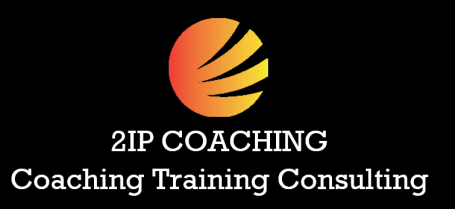MENTORING

Definition of Business Mentoring
Firstly, Mentoring must be distinguished from coaching, training nor tutoring, favouritism or even cloning.
Structured Mentoring improves the performance and decision-making process of managers and produces a balanced exchange of benefits for both Mentor and Mentee, with development specifically targeted at broader business objectives.
Given this reality, many organisations are investing in the professional development of their employees by creating Mentoring programmes tailored to their needs. This is a cost-effective investment for both organisations and employees.
Mentoring is an excellent way to improve retention rates. In addition to facilitating the integration of new employees, a mentoring programme sends a clear message to talented employees that the company provides them with effective tools to help them develop within the organisation
Example 1: The French company Sodexo has calculated that for every dollar invested in its mentoring programme, there was a return on investment of 128%.
Example 2: The mentor of the creator of Facebook was Steve Jobs, former CEO of Apple. They developed their relationship in the early days of Facebook and met often to see how they could grow the company in the most sustainable way. In fact, when Jobs passed away, Zuckerberg posted on his Facebook page: "Steve, thank you for being a mentor and a friend. Thank you for showing that what you build can change the world. I will miss you".
What are the benefits of Mentoring for stakeholders?
Benefits of Mentoring for the Mentor:
- Motivation to contribute to an individual's and the organisation's development
- An opportunity for personal and professional development
- Positive exposure within the organisation
- A more positive view of the organisation
- An opportunity to contribute to the organisation's development
- A broader view of your role and responsibilities
- Real tools to optimise the success of the other person and the relationship
- Sharing ideas, trying new skills and taking risks
- Valuing your experience and knowledge
The benefits of Mentoring for the Mentee:
- A protected learning process
- Professional and structured support
- An opportunity to develop their skills
- Increased technical, cultural and business knowledge
The benefits of Mentoring for the organisation:
- An environment that fosters personal and professional development
- More sharing of information, competencies and behaviours
- More “referent” managers and collaboration between leaders
- Better talent management and retention
- Increased job satisfaction for Mentor and Mentee
What are the roles and positions of the Mentor?
The mentor is a guide, a supporter and a facilitator.
He/she should act as a ‘mirror’ for the mentee and empathize with the her/him, in order to tailor support to their work situation & career challenges.
The mentor is therefore seen as a partner for the mentee, which implies that he/she helps the mentee to become familiar with the codes, culture, ways, not only of the company but also of the overall sector.
Guiding him/her constructively in his/her choices of actions and/or decisions.
The skills & posture expected of a Mentor:
- Defining the Mentoring contract: objectives, operating rules and procedures
- Laying the foundations of trust and cultivating it
- Practising positive confrontation
- Giving and receiving constructive feedback
- Using powerful questions
- Adapting Mentoring to different levels of autonomy
- Overcoming the resistance he/she has to face on the job, taking into account what he/she has already had to deal with throughout his/her career.
- Define the Mentoring contract: objectives, operating rules and procedures
- Lay the foundations of trust and cultivate it
- Practice positive confrontation
- Give and receive constructive feedback
- Use powerful questions
- Adapt Mentoring to different levels of autonomy
- Overcome the resistance you have to face on the job, taking into account what you have already had to deal with throughout your career.
The mentor is therefore considered a partner for the mentee, which implies the fact that he/she helps him/her to become familiar with the codes of the company and guides him/her constructively in his/her choices of actions and/or decisions.
Mirror, to help them get to know themselves better.
- Connector, to help the mentee develop his or her network and visibility.
- Driver, to help the mentee structure his or her career plan.
Evolution of Mentoring practices:
We are witnessing a clear evolution of Mentoring as a business tool. It has evolved from its organic roots, where employees naturally networked and developed interpersonal business relationships, to more structured mentoring programmes.
A new technology-based approach will make Mentoring a full-time component of the work environment and an essential part of today's work culture.
Almost all Fortune 500 companies have active mentoring programmes. Mentoring programmes are already deployed on mobile platforms...
Mentoring will include diversity and inclusion training, with a 72% retention rate for women who have participated in corporate mentoring programmes.
Today, companies such as Danone, IBM and SNCF use Reverse Mentoring as a means of supporting their employees.
In conclusion, we accompany companies around the world to implement strong mentoring programs and stay ahead of trends to keep on building quality businesses, this, based on the latest research.
Would you like to implement an engaging Mentoring Programme in your organisation?
Do you require skilled Mentors in specific fields?

Now it's your turn!
If you also believe that Mentoring programmes are essential
to develop people's potential!

Necesitamos su consentimiento para cargar las traducciones
Utilizamos un servicio de terceros para traducir el contenido del sitio web que puede recopilar datos sobre su actividad. Por favor revise los detalles en la política de privacidad y acepte el servicio para ver las traducciones.
